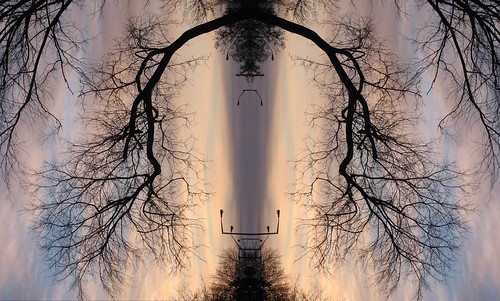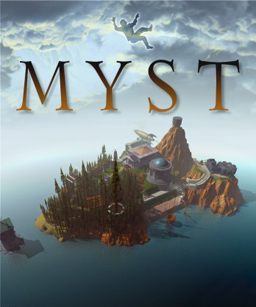
Finally, wrath. Western literature begins with it, in a full on drop-kick that knocks us into the dust.
Menin aeide thea Peleiadeo Achileos…
Perseus’s (the website, not the hero) online Greek dictionary understands that first word as “wrath, lasting anger”; but though Achilles' emotion is unchanging, like everything the Greeks called divine, our understanding of it will always rely on that most mortal of all pursuits: translation. In English, the versions reach deep into literary prehistory, like rungs on a ladder. Alexander Pope’s, for example, kicks off with:
“Achilles’ wrath, to Greece the direful spring
Of woes unnumber’d, heavenly goddess sing!”
To me, this couplet is like a particularly difficult yoga pose, or the opening sequence of a Hollywood action movie: contorted, obscurely balanced and – to an unsympathetic observer, at least – completely ridiculous. Much syntactic madness is inflicted in the name of rhyme; but despite our modern touchiness at this type of deformation, the Iliad’s central problem is still there, poised like a teacup on the tip of a sword. Wrath is sung, exclamation point – not sung of, or sung about, but SUNG! The lack of preposition suggests invocation rather than paraphrase: an act that, like Christmas Mass or a particularly vigorous touch football game, aspires to become what it describes. In other words sing this wrath, goddess, and in singing make us feel it. Kindle our hearts.
In the history of literature as it's known to us, then, wrath is a brushing of invisible dirt off our very real shoulders: the opening stutter-step with which we indicated (and indicate) our boredom, as a species, with walking, and a desire to elevate our body into a higher and more deeply useful sphere. As with all dances, however, the steps change over the years. Watch the just-departed 20th century sing its way out of the Homeric gates:
“Sing, goddess, the anger of Peleus’s son Achilleus,
and its devastation, which put pains thousandfold on the Achaians.” (Lattimore, 1951)
“Anger be your song, immortal one,
Akhilleus’s anger doomed and ruinous…” (Fitzgerald, 1974)
“Rage – Goddess, sing the rage of Peleus’s son Achilles,
murderous, doomed, that cost the Achaeans countless losses...” (Fagels, 1990)

As the years pass, composure slips from the original poem's shoulders like the silk bathrobe of a heavyweight fighter, revealing lines so muscled that they begin to seem more brutal than classical. The brilliant contemporary poet Christopher Logue completes this transformation with a version of the Iliad whose wrath is truly placed on our tongue and swallowed. Here’s his description of Patroclus’s thrown spear skewering Akafact:
“As Akafact fell back, back arched,
God blew the javelin straight; and thus
Mid-air, the cold bronze apex sank
Between his teeth and tongue, parted his brain,
Pressed on, and stapled him against the upturned hull.
His dead jaw gaped. His soul
Crawled off his tongue and vanished into sunlight.” (Logue, War Music, p. 153)
Given how soaked through these lines are with pleasure, it should be no surprise that the wrath they incarnate is pleasurable to us. Reading Logue’s Homer is unsettling and enlightening over and over again exactly because of how much pleasure it not just takes but makes us feel in its violence. Like Kill Bill vol. 1 (in my opinion our second greatest contemporary translation of the Iliad next to Logue’s), it illustrates how hypocritical it is for us to say, with Flannery O’Connor’s Misfit, that “It’s no real pleasure in life.” Actually, one of the problems of art is exactly that: no matter how rigorously we try to portray sin as terrible, monotonous, and limiting, our very portrayals are, by virtue of their being works of art, sculpted, powerful, and suffused with meaning. Admit it: you kind of sort of love the Misfit. And you love Achilles, or rather Brad Pitt, despite the fact that the work he exists in portrays him as the Slave (and therefore, we rush to conclude, the Master) of his passion.
I’m belaboring this point, which probably seems antithetical to my larger, pan-blogular argument about the fundamental sterility of sin, because I think it frames one of the biggest temptations I face as an artist: namely, to mistake the romantic creations of the books I read for their much less romantic creators. I call this The Stephen Daedalus Syndrome, after Joyce’s “autobiographical” hero from the Portrait and Ulysses. Sharp as a tack, “doomed and ruinous” as any Greek hero, he drags his roiling creativity through the Dublin of both books. For a good ten years, I was deeply in love with him, partly because of how much like me he seemed to be, and partly because of how much better than me he always was. But a while ago, I came to a realization: Stephen Deadalus did not write Ulysses. He couldn’t have, in the same way that Paul Morel couldn’t write Sons and Lovers: not because they lacked ability, but because there was something deeply adolescent in them, meaning something that, for all its promise, clung to its potential in order to avoid risking failure, which is after all the price of any communicative creativity.
As a young, failing, frustrated and frustrating writer, I spend a lot of time thinking about what kind of led life will allow me a writing one. I also spend a lot of barely-wrested time staring at my computer screen, wondering why nothing's happening. One of the things I’ve come to dislike about these posts is how much they seem to put me on the side of the normal and normative in fiction, as if I were trying to be a sort of James Woods lite. But as much as I love Woods, along with the rest of the great British belle-lettrist tradition that stretches from Coleridge and Hazlitt to Ricks, Bayley, Pritchett, et al, it would be facetious and dishonest of me to claim membership in their tribe - not to mention the rhetorical self-confidence conferred by that membership. Anglicans protest only to form new communities; but the American tradition is an archipelago of antinomians that curls like a nautilus towards greater and greater loneliness. Our brains breed islands, as Bishop’s Crusoe puts it. And if those islands found cities in the future, we should remember to be conservative with our conservatism – for the unmannered now may seem thoroughly normal in the future, even sophisticated. Think Stein, that disciple of Henry James, or Picasso’s portrait, which he admitted did not look like her. “But it will,” he said.
Still, the new and different is not always the prophetic, and it is every writer’s job to decide how much of his tradition he can abandon, and how much of himself he can indulge. Not every passion deserves to be fed – or rather, within every passion there is a bet being made (if not in the sufferer, then at least on him), that the voice being heard is God’s. If it’s not God’s, we’d better believe it is – either way, we’d better be skilled and persuasive enough to convince others that it is. Because the loneliness of an artist who cannot believe in his or her own art is a deep one, and no amount of readers or rewards will be able to change that.
The French philosopher/Alsatian Simone Weil, who died when she was 34 from tuberculosis and self-enforced starvation, kept a copy of the Iliad by her bed. “A Poem of Force” she called it – though to her, the rage of the book’s characters was something that the book itself ended up condemning, through relentless accumulation. In this way, it was less a thriller and more a war movie, like Saving Private Ryan or Plattoon – or better yet, an Apocalypse. There may be people who encounter works like this and find themselves thrilled to the point of imitation, but Weil wasn’t one of them; on the contrary, her Iliad, unlike Logue's, denounces the pre-Christian world of might makes right with a vehemence that is absolutely unwavering. You want man in nature? You want to follow your passions without any conscious or cultural checks? Well then, here you go. Breathe deep. That faint metallic scent you smell is your own helplessness in the face of the Gods.
For me, sin is real because loneliness and isolation are real, and the self-devouring is everywhere. It’s also real because writing is life and life is writing, the one an allegory for the other. If we take this connection seriously, I think, we bring ourselves closer to an understanding of what it means to be both creative and happy in the world. We also get a sense of how difficult it is, not just to understand ourselves, but to pour out the rich little glass of our personality in a way that enriches both it and the larger community. Despite the romantic image of the writer holed up in his tower that has been foisted on us for at least a century, I understand writing as a fundamentally social act. It is work, not Mozartian work that flows from our fingertips like snot from a runny nose, but achieved work, half gift, half labor, whose deep desire, like ours, is to be shared.
















